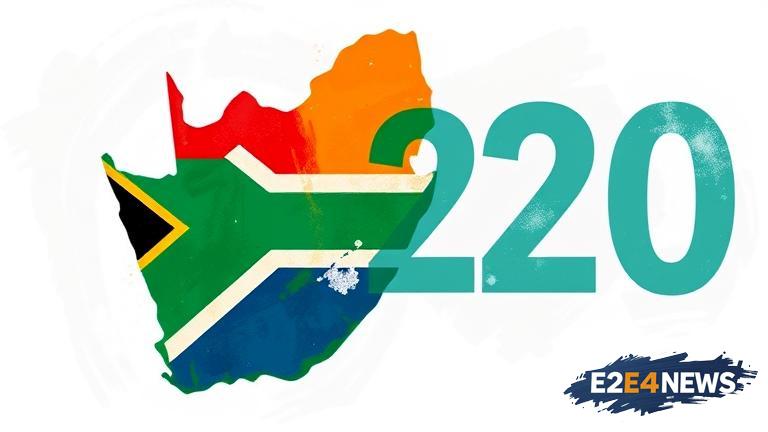South Africa has been a vocal advocate for institutional reform under the leadership of the G20, a group of the world’s largest economies. The country believes that the current global economic order is not equitable and that reforms are necessary to address the needs of developing countries. South Africa’s call for reform is driven by its own experiences as a developing country, where it has faced significant challenges in accessing international markets and securing investment. The country’s leaders argue that the current system is biased towards the interests of developed countries and that this has resulted in significant disparities in economic development. To address these disparities, South Africa is proposing a range of reforms, including changes to the governance structures of international financial institutions such as the International Monetary Fund (IMF) and the World Bank. The country is also calling for greater representation for developing countries in these institutions, as well as more flexible and responsive lending policies. Furthermore, South Africa is advocating for the creation of new international institutions that are more responsive to the needs of developing countries, such as a proposed African Monetary Fund. The country’s leaders believe that these reforms are essential for creating a more equitable global economic order, where all countries have an equal opportunity to participate and benefit. The G20 has been a key platform for South Africa’s advocacy efforts, and the country has worked closely with other member states to build support for its reform agenda. In addition to its work in the G20, South Africa has also engaged with other international organizations, such as the United Nations and the African Union, to promote its vision for institutional reform. The country’s efforts have been welcomed by many developing countries, which see South Africa as a champion of their interests. However, some developed countries have been more skeptical of South Africa’s proposals, and have expressed concerns about the potential impact of reforms on the stability of the global economy. Despite these challenges, South Africa remains committed to its reform agenda, and is working to build a coalition of like-minded countries to support its efforts. The country’s leaders believe that the current system is unsustainable and that reforms are necessary to prevent future economic crises. They also argue that the benefits of reform will be shared by all countries, as a more equitable global economic order will lead to greater economic growth and stability. In conclusion, South Africa’s call for institutional reform under the leadership of the G20 is a significant development in the global economic landscape. The country’s proposals have the potential to create a more equitable global economic order, where all countries have an equal opportunity to participate and benefit. While there are challenges to be overcome, South Africa’s efforts are an important step towards creating a more just and sustainable global economy. The country’s leaders are confident that their reform agenda will gain traction in the coming years, and that the benefits of reform will be felt by all countries. As the global economy continues to evolve, it is likely that South Africa’s call for institutional reform will remain a key issue on the international agenda. The country’s advocacy efforts are an important reminder of the need for continuous reform and improvement in the global economic system. By working together, countries can create a more equitable and sustainable global economy, where all countries have the opportunity to thrive. South Africa’s leadership on this issue is a testament to the country’s commitment to creating a better future for all. The country’s proposals for reform are based on a deep understanding of the challenges facing developing countries, and are designed to address the root causes of economic inequality. By promoting greater representation and participation for developing countries, South Africa’s reform agenda has the potential to create a more just and equitable global economic order. The country’s efforts are an important step towards creating a more sustainable and prosperous future for all countries, and are a significant contribution to the global debate on economic reform.
